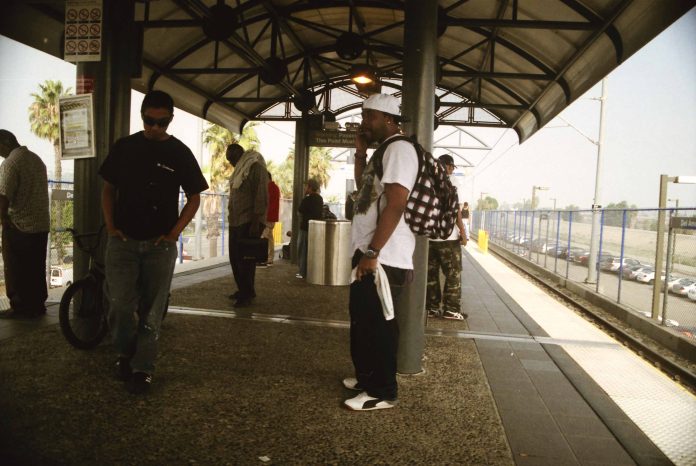I’ll confess to being annoyed with the man on first blush. I wasn’t infatuated with the guy. Why?
He was the sort Walker Evans would’ve photographed were he alive today, the marginalized lot Manet would’ve included in his beggar-philosopher series, dressed in the tousled and bedraggled grunge which stands outside of the vagaries of fashion, a look that doesn’t age.
You know I normally love these guys.
It was his attitude of entitlement which I let rub me wrongly. When I first met him, I hadn’t heard a line a colleague would later tell me, a throwaway sentence which would stick in ways he likely never intended and would prove so useful in so many instances for me.
“They act entitled because they’re not.”
Many mantras of self-talk I repeat to myself have similarly inauspicious beginnings. Of course. Marcus walked in and demanded the heater be turned on in a way I found frustrating. Some folks never learn the variations of power they can exert by how they phrase things, and go through life demanding, with no idea that politely asking usually gets you more. Intellectually, I could see that pleasantries are probably not high on your mind if you’re stuck outside sleeping on buses that are uncomfortable and cold. You’re likely also working on a whole host of other issues. I appreciated that intellectually, but not emotionally. I had to bite the urge to be passive-aggressive about it.
I reminded myself I had nothing against turning the heat on, and did so. He was the same the next few times I saw him — demanding in a way that hid his reasonableness, with a particular interest in heat. I wouldn’t know his name until more than two years later, when out of the blue Marcus showed up again, dressed in similar garb and limping, one leg in a cast. I couldn’t remember if he’d always had glasses.
By this time my colleague friend had unwittingly contextualized entitlement among the homeless for me in a way I found helpful in its understanding perspective, and I’d grown to realize that people have different intentions when they say the same lines. A person who’s never learned delicate phrasing (“if isn’t too terribly imposing, I was wondering if I could inquire about the status of the heater?”) may not be trying to be rude when they express their needs (“HEAT!”) in the clearest way they know how. It may also be that they have more pressing concerns.
It was easier to take Marcus’ tone in stride. Should we really expect people to be at their best when they’re trying- and usually failing- to get good sleep by riding buses around all night? Over time, my kindness wore him down. He asked one night if I had anything sweet. “I got diabetes,” he explained. “You got an orange or something? I know you got an orange.”
“How’d you know I had an orange? Yeah, this one’s got your name on it.”
After that I’d periodically check up on him. Did he need a granola bar? Did he want these Skittles I definitely wasn’t going to eat? We’d talk about the wavering status of his leg. Never long conversations, but companionable. Or he’d listen silently as I chatted it up with someone else.
One day, upon reaching the end of the line, as I walked back there to where he and a few other sleeping forms reposed, he called out to me.
“Yo, Nathan.”
“Mister Marcus, hey.”
“I got something for you.”
“For me, no way!”
“Yeah, man.” He fiddled with his overstuffed backpack. “You like salads?”
“I love salads!”
“Yeah, I got these salads for you.” He’d been carrying them around in anticipation of seeing me. I was struck by the absurdity of someone in his position giving someone in my position food, and said so.
“Now hang on, Marcus, you sure you don’t need these yourself? Stuff is good for ya, man, spinach makes you big and strong….”
“Dude. I don’t eat that stuff, man,”
“Ha!”
“It’s for you!”
“You sure, bro? Thank you! Thank you so much! Man, Marcus!”
When you learn a lot in the space of a few seconds, the effect is profoundly humbling. He has every reason to keep the food he comes upon for himself. Every reason. But here he is, feeling it was important enough as a gesture to give me, the reasonably well-heeled bus driver artist, two spinach and feta salads? What? He did not need to do that. It was not necessary for his survival, benefited him nothing, and cost him valuable space in his pack lugging it around looking for me. But it wasn’t about any of that. This was his way of expressing gratitude. Not flowering Victorian requests for the heater, but the gift of food.
Which, let’s be honest, is what I would prefer anyway!
—
Only recently did I learn, from an offhand mumble, that Marcus has a job. He works janitorial duty during the day… and does this at night? Roll around catnapping while continuously getting interrupted? Wow. How does he do it? “You’re friggin’ Superman,” I decreed. No wonder he’s abrupt sometimes, my goodness. I certainly wouldn’t be at my best in such circumstances. Talk about being one of the enterprising ones.
Nathan Vass is an artist, filmmaker, photographer, and author by day, and a Metro bus driver by night, where his community-building work has been showcased on TED, NPR, The Seattle Times, KING 5 and landed him a spot on Seattle Magazine’s 2018 list of the 35 Most Influential People in Seattle. He has shown in over forty photography shows is also the director of nine films, six of which have shown at festivals, and one of which premiered at Henry Art Gallery. His book, The Lines That Make Us, is a Seattle bestseller and 2019 WA State Book Awards finalist.



